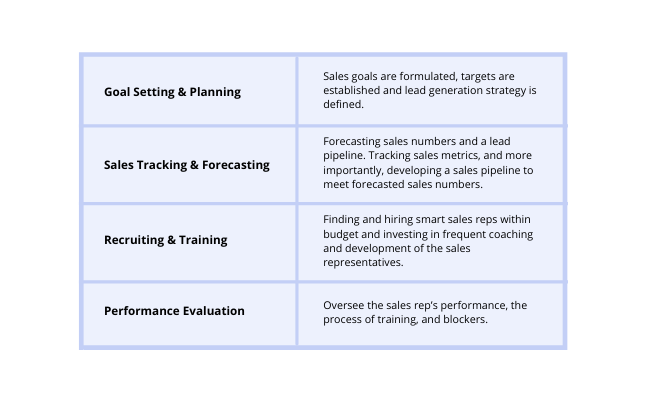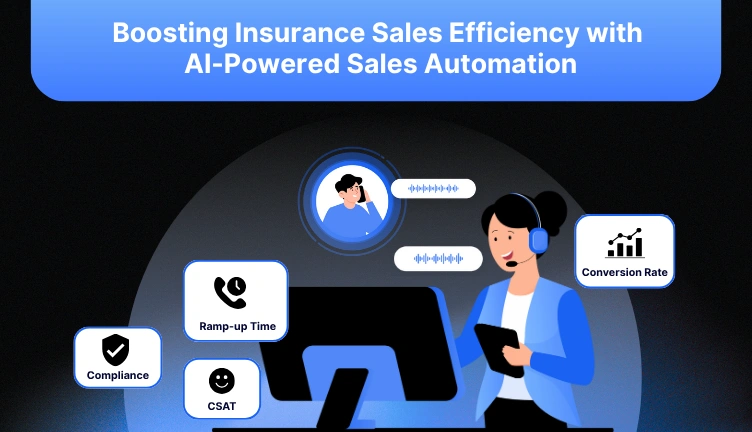Sales Management Software did not fall from the sky. Those picky and fussy clients made it happen. No offense!
Did you know 52% of consumers desire personalized engagements and offers, based on past interactions, before selecting a vendor? This means personalization is imperative in every sales touchpoint.
To burst your bubble, a scattered, disorganized, uncoached, and non-trackable sales approach can’t result in a personalized sales strategy, especially in the post-pandemic era.
With remote selling picking up pace and demand for personalization sky-rocketing, the need for analytics-driven Sales Management Software comes into play in sales messaging, calls, emails, collaterals, and even LinkedIn engagements.

First, jot down your sales team’s requirements and then, evaluate different software based on the list of requirements and a few critical factors that’ll reduce the guilt of making a poor choice 1 year down the road.
So, stay with us till the end and run through every angle of sales management before making a purchase decision.
What is a Sales Management Process?
Every organization runs a sales operation process and a team of sales professionals to solicit business. When operations and the team is managed in an organized, data-driven, and holistic manner-a sales management process is born.
Sales management is a subjective term and differs from one organization to another. However, there are a couple of commonalities that all enterprises maintain.
The sales management process is defined as a method to manage and streamline all day-to-day sales activities. Right from planning, recruiting to tracking performance, all areas of sales management are accurately monitored and directed from time to time.
Let’s put it this way- sales quota, pipelines, interactions, targets, tracking, training, etc., are no longer an individual's headache. The process ensures the smooth running of sales activities with continuous improvements.
In case you are wondering, how’s this a process? Then you are at the right question. Just like any other process-driven organization function, here are a few broadly defined stages involved in a sales management process-

Now, before we jump into the sales tools, it’s good to understand the role of the MAN behind the scene.
Who’s in charge of the sales management show?
A sales manager takes responsibility for the smooth running of the selling program. The role ensures sales goals are met, consequently impacting the organization's goals. Sales managers and leaders identify growth opportunities, patterns, and wins as well as govern sales rep onboarding, sales training, and best practices.

And that’s why the sales manager is a key element of the sales management process- overseeing all the sales operations and professionals and aligning sales targets to organization goals.
Why do Sales Managers Invest in Sales Management Software?
An individual sales manager can't handle everything on their own. If they do, they'll be accused of micromanagement, which you don't want to hear.
An intelligent approach would be to deploy an AI-powered centralized system that accelerates sales productivity and ramp-up time by implementing sales processes, managing sales operations, and coaching sales reps using data and conversational intelligence.
As a sales leader, you will only hear numbers when you ask how a sales management system benefits them. The system that the sales leads invest in must impact the following critical metrics:
- Increased sales revenue and profitability
- Improved sales forecast accuracy, thereby reducing revenue variability
- Increased productivity
How To Evaluate A Good Sales Management Software?
1. Nail down the must-haves
- Sales transformation starts with a tool that offers actionable insights before and after all sales meetings
- Sales teams need to stay abreast with the latest prospect/client information
- Your selected solution should identify or prompt potential opportunities.
- Continuous sales team performance analysis should be a priority
- Along with performance indicators, conversational intelligence-powered sales management software should be capable of identifying sales coaching opportunities.
- Insight-based sales tools encourage frequent engagement with prospects and customers
2. Productivity and Time Management
All market players offer high productivity tools, but remote selling has changed the way time management and efficiency are measured.
Today, sales teams are spread across continents and remote locations. All remote sales activities such as automated sales reports must be built without any hiccups or interruptions, in minimum time- a sales management software becomes successful for your business at this point.
As an example, newbie sales training cannot wait for all employees to assemble at the same time, quick training libraries and playbooks reduce the amount of time and effort required.
Also, a mobile-friendly software tool will make sales easier. Your team can stay on top of all tasks on the go.
3. Promote Teamwork
Sales management systems must promote teamwork and the capability to share data. Shared data and collaboration reduces the need for frequent communication and allows all sales reps to be on the same page. However, this functionality shouldn’t undermine user access rights and organization-wide authority structures.
4. Ease of Use
Most software is designed with ease of use in mind, however, sales teams are often pressed for time and need access to customer information and previous call notes at a moment's notice. The sales management tool must make sales insights easier to access, analyze and centralize, requiring little to no switching between screens.
5. Analytics
Sales analytics is gold. Client data is hard to get, and analyzing it is even more difficult.
Sales analytics will be a great help to your sales team as intelligent conversations don’t just happen out of the blue. Sales teams need customer insights and analysis to handle future objections.
The importance of analytics can't be underestimated and demands undivided attention. The sales team alone doesn’t benefit from an analytics tool, as several other departments, such as marketing, can take advantage of the data. No kidding!
Pay attention to simple features in the tool- dashboards, interactive reports, charts, and graphs and the ability to sort and filter data. They may sound trivial but often create a major impact.
6. Integration
Integrations to an already existing sales tech stack are a must-have for seamless sales operations. Vendors would either offer out-of-the-box integrations or would be willing to integrate with your incumbent software solution.
Exercise: List all the tools that your sales and marketing team use presently( for instance- slack, salesforce, zoom, etc.) Now, check the compatibility of the vendor’s solution with your existing list.
Word of caution: Do not compromise in this parameter.
7. Security
The solution must consider all aspects of security, right from customer data confidentiality to sign-on permissions. You may want to examine the access controls and role-based permissions in the sales management software system.
8. Scalability
The importance of scalability is often overlooked, but the value is incomparable.
Your organization is on the verge of expanding vertically and horizontally. Be sure to consider the sales team and the influx of customer interactions. Investing in a solution that is capable of dealing with large data volumes is what you should be looking for.
9. Cost of purchasing
The reason we’re emphasizing the purchase cost at the end is that it’s a given and doesn’t need much of a discussion. However, don’t pay attention to the upfront costs, carefully scrutinize the vendor's quote and proposal for additional charges.
Don’t trust your hunch, trust facts!
Purchasing sales management software may seem like a no-mean feat. And you’re right, it is! However, the fruits are sweeter than you know.
In addition to boosting sales numbers and accelerating revenue, sales management tools also motivate your sales representatives immensely, resulting in a healthy pipeline and happy customers.

Transparency, visibility, and training make the sales management process a boon for sales reps.
While you decide to purchase a software product, don’t be in a hurry. Compare your options and evaluate all parameters as per your organization’s sales requirements.
If you have any questions about intelligent sales management software, let's schedule a call.
This blog is just the start.
Unlock the power of Convin’s AI with a live demo.





.avif)



.avif)